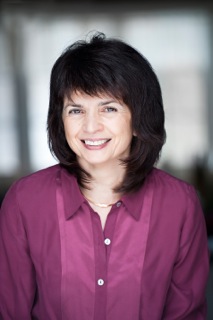 The Alzheimer’s Drug Discovery Foundation (ADDF) puts a premium on partnerships. When we team up with other forward-thinking foundations, we increase our funding power and our combined expertise to get to a cure for Alzheimer’s and related dementias faster.
The Alzheimer’s Drug Discovery Foundation (ADDF) puts a premium on partnerships. When we team up with other forward-thinking foundations, we increase our funding power and our combined expertise to get to a cure for Alzheimer’s and related dementias faster.
The ADDF has partnered with the Association for Frontotemporal Degeneration (AFTD) for nearly a decade, funding 24 unique drug discovery programs totaling over $2.7 million. We spoke with Nadine Tatton, PhD, Scientific Director of the AFTD, about our collaboration.
What inspired you to get involved with the AFTD?
I was an academic scientist working in Parkinson’s disease research for a long time, but in 2008 my husband began to develop symptoms of ALS. When he passed away in 2011, I realized that I needed to do something different in my career path. I was lucky enough to see a post highlighting the role at the AFTD and I thought “That’s it! That’s perfect. That’s what I need to do.”
I’ve been the scientific director at the AFTD since the summer of 2013. I oversee our grants and our postdoctoral fellowship program. I also contribute to developing new research initiatives and partnerships.
How are frontotemporal dementia (FTD) and Alzheimer’s disease different?
FTD tends to be a young-onset dementia that hits people in their 40s and 50s. Alzheimer’s, on the other hand, most often strikes people who are 65 and older. And unlike Alzheimer’s, memory issues are not the predominant feature—FTD is really a spectrum of disorders that include deficits in behavior and cognitive and motor function.
Why is partnership important?
There are so many different companies creating the same kind of drugs and targeting the same areas—especially in neurological diseases like Alzheimer’s and FTD. I think foundations like the ADDF and advocacy groups like the AFTD are creating a paradigm shift and facilitating communication across different stakeholder groups. We also fill the gaps in funding for drug development by exploring programs that are very innovative but too risky to garner government funding.
In 2014, the AFTD and the ADDF funded two researchers. The first was Charlotte Teunissen, PhD, from VU University Medical Center in Amsterdam. Describe her work.
I’m so excited about funding Charlotte’s work because she is tackling one of the biggest challenges facing FTD research—differentiating the two most common subtypes of FTD in patients. This is incredibly important because the type of FTD a person has can impact the effectiveness of any given treatment. We need to know whether a person has FTD characterized by an accumulation of tau, or FTD characterized by accumulation of TDP-43, to enroll patients in the right clinical trials and monitor their responses to different therapies. Dr. Teunissen and her team are working to create an early detection tool that allows us to distinguish between these two types of FTD in living patients, something that is currently not possible.
The second grant went to Matthew Disney, PhD, of the Scripps Research Institute. What excites you about Matthew’s work?
I think it’s such a cool project and really different from any other approach that is currently underway. It’s centered on the fact that researchers have recently discovered that the majority of familial cases of FTD and ALS are caused by the same genetic mutation. This mutation, in the C9ORF72 gene, leads to the buildup of RNA molecules in the brain that can set off a toxic chain of events. Matthew is working to design a drug-like compound that binds these molecules and prevents that chain of events, ultimately protecting the brain.
Final thoughts?
I’m incredibly excited about our partnership and the kind of projects we’re funding together. This is cutting-edge science and I genuinely believe that we’re supporting the most innovative approaches to drug discovery for Alzheimer’s, FTD, and related diseases. I only wish we could fund every project that comes our way!